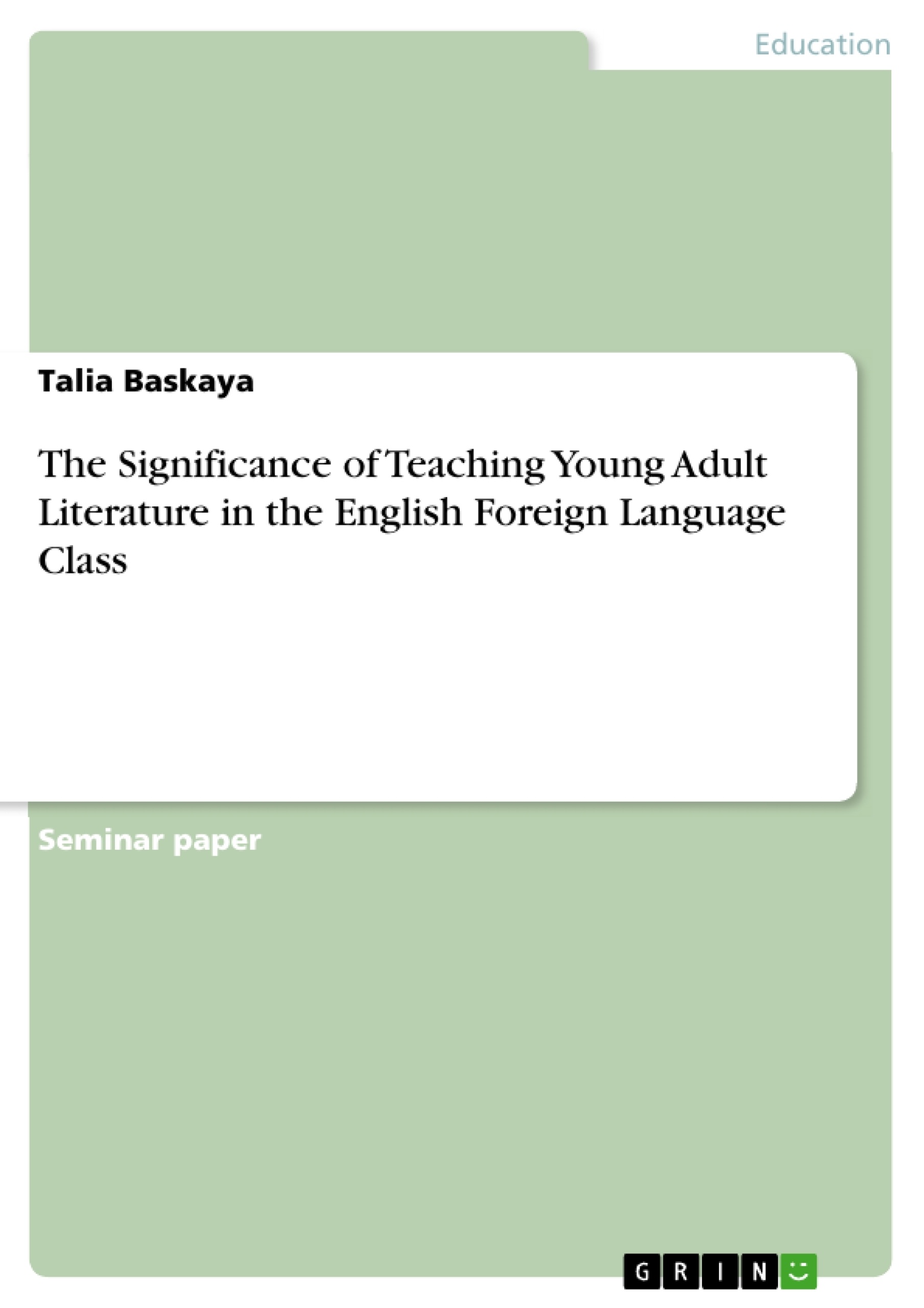The following term paper will deal with the significance of teaching ethic values in school and how it can take place simultaneously with foreign language classes. In this case, the English Foreign Language Class (EFLC) will be in our focus. Above all, the main topic will be about how teachers can avail themselves of using YAL in order to teach the foreign language contemporaneous with ethical values. In order to do so, YAL will be defined and its importance for the EFLC will be emphasized. In this regard the chances and possibilities will be presented, furthermore the problems and challenges will be explained. Subsequently, the significance of teaching ethic values will be pointed out in combination with the competences which English teachers are ought to foster. Lastly some examples for teaching ethic values with YAL will be presented with the help of chosen novels which can be utilized in the EFLC.
Tutorizing literature has always been an essential part of the curriculum for language teaching classes and owns a granted position in the language teaching process. In particular for Mittel- and Oberstufe canonical literature used to be the classical material teachers ought to make use of, whereas in the last years Young Adult Literature (YAL) seems to have a chance of taking its place. While YAL has been utilized in primary schools since the early 1990’s, it has made its way into the Mittelstufe toward the end of the 1990’s and has slowly started to appear in the Oberstufe nowadays. Several positive experiences, recommended novels, teaching units and additional material are available by now, whereas there is still a lack of systematic analyses concerning the learning goals and teaching possibilities in different school years. In addition, YAL consistently has to deal with its prejudiced reputation as teachers, parents and linguists tend to underestimate the worth and possibilities which underlie non-classical literature.
Inhaltsverzeichnis (Table of Contents)
- Introduction
- How is YAL defined?
- Advantages and risks of reading and teaching YAL
- The Significance of Teaching Ethical Values
- Competences That Can Be Fostered by YAL
- Examples of How YAL Can Teach Moral Values
- Conclusion
Zielsetzung und Themenschwerpunkte (Objectives and Key Themes)
This term paper explores the significance of teaching ethical values in school, specifically within the English Foreign Language Class (EFLC), using Young Adult Literature (YAL). It aims to demonstrate how teachers can utilize YAL to teach the foreign language while concurrently conveying ethical values. The paper defines YAL, outlines its advantages and challenges, and emphasizes the importance of fostering key competences in English learners through literature. Furthermore, it provides specific examples of how YAL can be used to teach moral values in the EFLC.
- Defining and explaining Young Adult Literature (YAL)
- Examining the advantages and risks of reading and teaching YAL
- Highlighting the significance of teaching ethical values in the EFLC
- Identifying competences fostered through YAL, including critical thinking and cultural understanding
- Presenting examples of novels that effectively teach moral values through YAL
Zusammenfassung der Kapitel (Chapter Summaries)
- Introduction: This chapter establishes the context for the paper by discussing the growing role of YAL in language teaching, particularly in secondary education. It acknowledges the increasing use of YAL in the EFLC but highlights the need for more systematic analyses of its learning goals and teaching possibilities. The paper emphasizes the importance of overcoming prejudices associated with YAL and explores its potential for teaching ethical values.
- How is YAL defined?: This chapter defines YAL through the lens of various authors, highlighting its distinct features and characteristics. It examines the evolution of YAL and its transition from purely teenage romances to more complex narratives that address the realities of teenage life. The chapter concludes by outlining the key elements of YAL, including its focus on authentic situations, relatable protagonists, and appropriate language and style for its target audience.
- Advantages and risks of reading and teaching YAL: This chapter delves into the positive impact of literature teaching and reading, citing renowned authors and scholars who emphasize its transformative power. It explores the potential of YAL to enhance students' language skills, critical thinking, and cultural understanding. The chapter also acknowledges potential risks associated with YAL, such as the need for careful selection of texts and the potential for misunderstandings or inappropriate content.
Schlüsselwörter (Keywords)
This term paper focuses on the key concepts of Young Adult Literature (YAL), ethical values, English Foreign Language Class (EFLC), teaching methods, competences, and literary analysis. It examines the intersection of these concepts and explores how YAL can be a valuable tool for teaching ethical values and fostering critical thinking, cultural understanding, and language proficiency in the EFLC.
- Quote paper
- Talia Baskaya (Author), 2017, The Significance of Teaching Young Adult Literature in the English Foreign Language Class, Munich, GRIN Verlag, https://www.grin.com/document/513419




